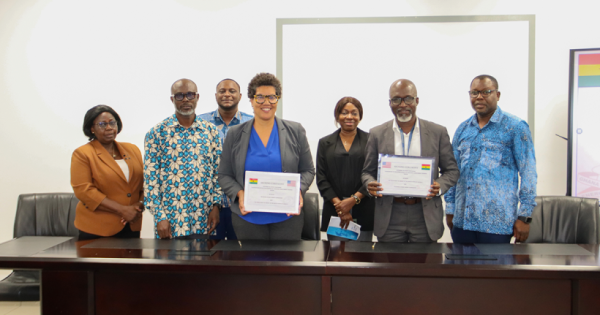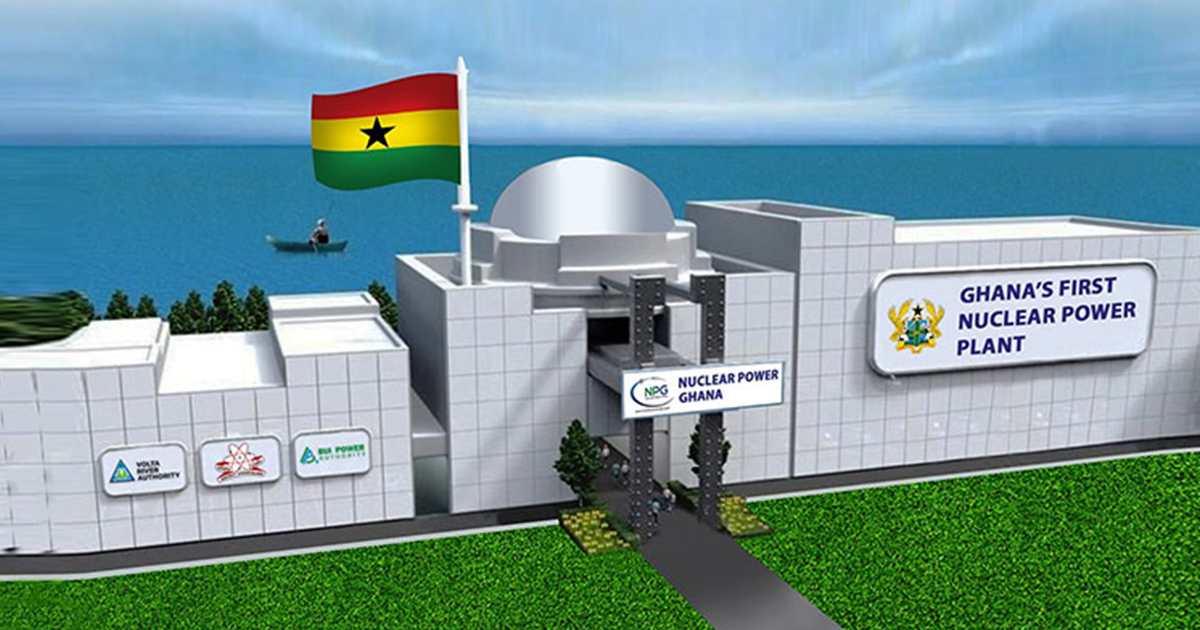The United States and Ghana formally launched Africa’s First Nuclear Energy Training Hub to support the development of civil nuclear energy programs across the continent.
The center will serve as a regional training hub for Ghana and other like-minded African countries considering nuclear energy as part of their economic development, energy security, and decarbonization goals. Ghana and the United States are part of broader pledge to triple global nuclear energy capacity by 2050.
To further that goal, the U.S. Department of Energy (DOE) and Ghana Atomic Energy Commission’s Nuclear Power Institute officially launched the region’s first Clean Energy Training Center in Accra, Ghana.
The training center builds upon previous work in the country, which included a virtual training program hosted by the United States that covered the fundamentals of civilian nuclear power programs ranging from project development and financing to nuclear security and national nuclear laws and regulations.
Significance of Africa’s First Nuclear Energy Training Hub
Through the training center, the United States will offer additional technical expertise and training with support from its nuclear industry, national laboratories, and academic institutions on topics such as workforce capacity building, reactor design and operation, and the management of spent nuclear fuel.
“This center will be a critical resource for Ghana and other African countries working to deploy nuclear technology to address energy challenges while contributing to sustainable development,” said Deputy Assist Secretary for International Cooperation Aleshia Duncan. “The center also symbolizes the United States continued commitment to knowledge sharing, ensuring like-mind countries have access to technical, regulatory, and workforce development resources to successfully launch, and more importantly sustain, nuclear programs.”

DOE established the world’s first clean energy training center earlier this year in Poland to help jump-start the country’s domestic civil nuclear energy program.
The Department is requesting an additional $8 million in Fiscal Year 2025 funds to help establish similar hubs to support new and emerging nuclear energy programs in Africa, Asia, and Central and Eastern Europe.
DOE looks to build upon the appetite for nuclear energy across Africa with a second U.S.-Africa Nuclear Energy Summit focused on industry readiness.
The summit will be held in collaboration with Kenyan Nuclear Power and Energy Agency and the Ministry of Energy and Petroleum of Kenya.
Ghana Seeks to Construct its First Nuclear Plant
Ghana is considering bids from five companies for the construction of what would be its first nuclear power plant. The companies include France’s EDF,and Russia’s Rosatom. The Conversation Africa’s Godfred Akoto Boafo interviewed Seth Koffi Debrah, director, Nuclear Power Institute, Ghana Atomic Energy Commission, on the pros and cons of adding nuclear power to the country’s power mix, and why Ghana needs to diversify and identify new energy sources.
Lastly, the country’s industrialisation ambitions, fuel constraints, limited resources, climate conditions and international commitments to climate change mitigation are among the factors driving Ghana to include nuclear power in the energy mix. Nuclear power is available all year round, making it reliable. The nuclear power plant is expected to operate as a baseload plant (the production facility used to meet some or all of an area’s continuous energy demand), with a capacity factor of about 92%. A conventional nuclear power plant typically operates for 92% of a calendar year as compared to 54% for natural gas power plants, 24% for solar and 34% for wind power plants.
1000 Megawatts Kenya Nuclear Power Plant Construction to Commence in 2027
